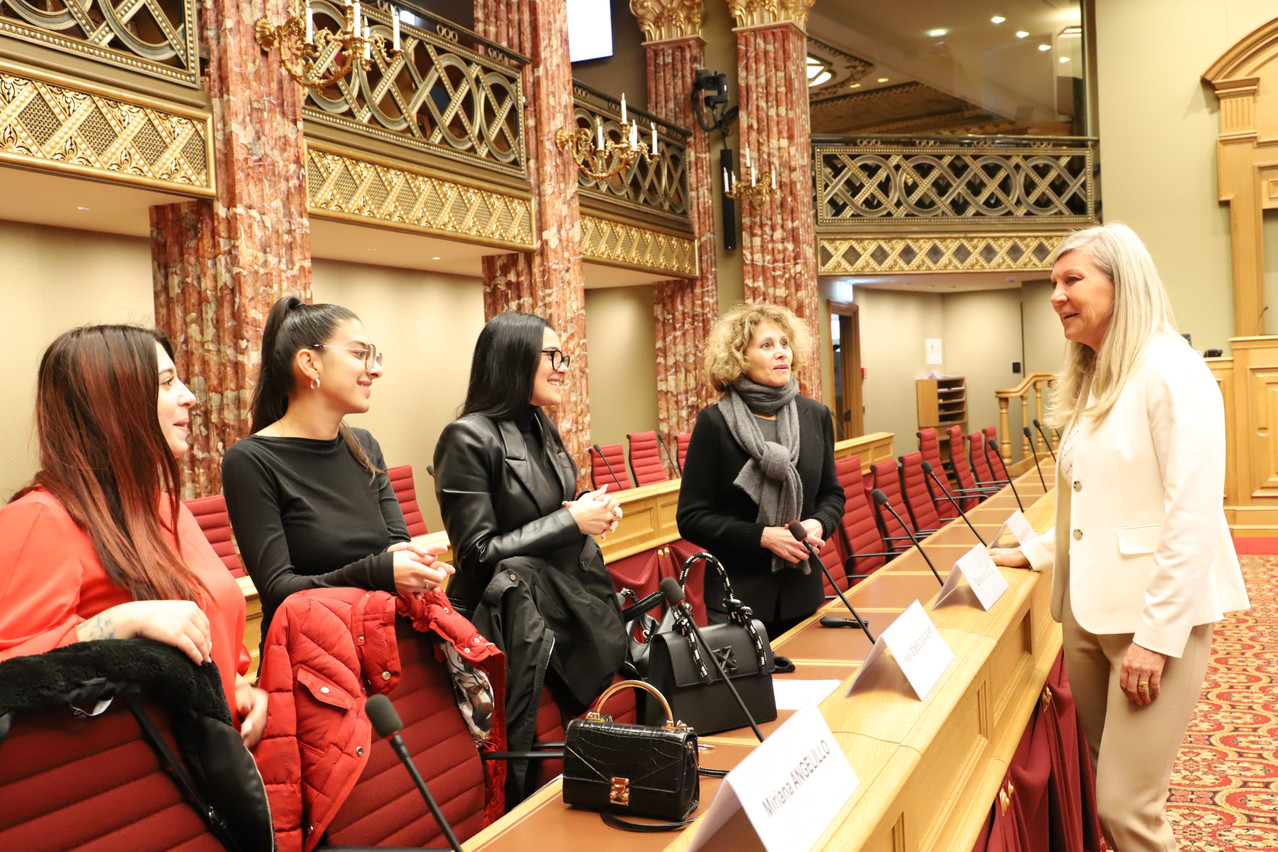There will be no exemption from work for menstruating women. Although petition 1865, launched last May, collected 2,400 signatures in 24 hours and obtained the minimum of 4,500 signatures to force a debate in the Chamber in just 20 days - it collected a total of 4,805 - it was decided on Wednesday 6 October, during the public debate held in the Chamber of Deputies, that there would be no exemption.
Ornella Romito, the initiator of petition 1865, was present in the Chamber of Deputies on Wednesday, accompanied by three other women giving evidence on the subject. The debate took place in the plenary hall, a first after several months spent in the Cercle Cité. She was accompanied by three other women who spoke on the subject. They were joined by members of the relevant parliamentary committees (Petitions, Labour, Employment and Social Security). Minister of Labour (LSAP) was also present. They were able to present their arguments; the MEPs and ministers were able to ask their questions.
The discussions will continue
Danielle Choucroun, doctor and member of the Family Planning team, explained the taboo surrounding women's menstruation and the pain that some women may experience. "They can have headaches, even discomfort, and working with pain is very difficult, pain makes you tired. For women with conditions such as polycystic ovarian syndrome or endometriosis, the pain is very difficult to live with and there are very few drug solutions to relieve it."
Mistakenly called "menstrual leave", the petition was "to allow women to get an exemption of at least two days so that they can stay at home and not have to force or even torture themselves to go to work with abdominal pain. It's not about having to call in sick every month and therefore feeling guilty about having a medical certificate, it's about helping women," Ornella Romito told the House.
And although there will be no exemption from work, "discussions will continue to find solutions for those suffering particularly from painful menstruation at work,” said Labour Minister Dan Kersch. Four ministers are due to meet shortly in a joint parliamentary committee (labour, equal opportunities, health and education) to consider ways of facilitating the situation of the women concerned, especially in the workplace. Another option considered following the discussions with the members of the two parliamentary committees (labour and petitions) and the Minister of Labour Dan Kersch, is to make company managers more aware of the situation of the women concerned.
Mixed reactions in other parts of the world
What about elsewhere in the world? In France, a company in Montpellier was the first to introduce 'menstrual leave' on 1 January 2021. At the co-op La Collective, female staff will benefit from an extra day of paid leave. This initiative was not unanimously supported, however, as several feminist associations denounced it, explaining that it stigmatised women and that it could lead employers to favour the recruitment of male employees. "That is why we did not ask for time off work, but for the possibility of adjusting our schedule in case of painful periods," says Ornella Romito.
Some countries, such as Japan and South Korea, have enshrined this leave in law - since 1947 in Japan and since 1950 in South Korea - but it is ultimately ignored as it is frowned upon. In Japan, it was originally intended for women working in factories, but companies do not pay for it, and less than 1% of female employees claim it.
This story in French on Paperjam. It has been translated and edited for Delano.
